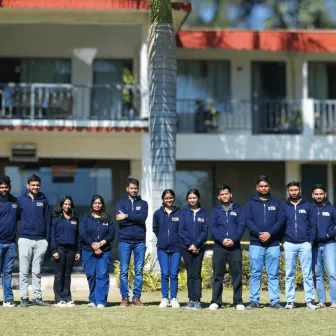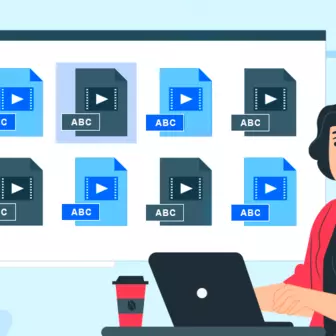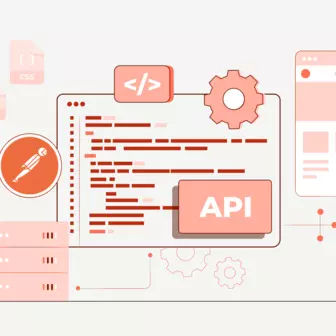Effective ways of leading team meetings productively
As a successful leader or manager, the last thing you want is to waste an hour or two in an unproductive meeting. It doesn’t matter if it’s a weekly, team or stand-up meeting. Bad meetings are a complete waste of time and energy.
Today, meetings consume more work hours like never before. According to the research conducted by TED, leaders spend about half their workweek in meetings. And a third of that time is wasted on pointless or poorly managed meetings.

A study conducted by Clarizen found out that most employees consider status meetings a complete waste of time. 50% of the participants preferred watching paint dry to attending those meetings.
When it comes to any type of meeting be it weekly or daily, the feeling is common in most employees. A meeting can be good or bad. And bad meetings are worse, especially on a bad day. Meetings don’t have to be bad or something to dread and endure.
Meetings should be energizing, intentional and productive. All meetings should be aimed towards delivering real tangible results. So, how can you lead to productive meetings? Here five proven secrets every successful leader uses. But first, let’s look at the importance of meetings.
Why you should have team meetings
What is the point of holding team meetings regularly? If meetings tend to frustrate and tire you, you’ve probably asked yourself this question hundreds of times before attending them. You are probably thinking of getting rid of them. However, you cannot avoid or eliminate meetings for a couple of reasons.
1. They provide information
Experts from some of the best essay writing services say that a scheduled meeting is one of the most important ways to provide the right information to your employees and ensure that they’ve all understood by answering their questions effectively. It would be very frustrating if you had to provide information to every employee individually and explain what you mean. Meetings are convenient. They’ll save you a lot of time and energy in the long run.
2. Builds team strength
Meetings are crucial because they develop and improve organizational and interpersonal skills while instilling a sense of commitment and togetherness. A team tends to get weak when everyone does what he or she wants with no clear plan. A meeting helps in clarifying the path which the team should take and ensuring that all team members account for what they do.
3. Promotes collaboration
As Brill Assignment reports, meetings not only help in delivering crucial information but also promoting team collaboration which is critical for the success of any business. When employees fail to understand or work with each other, the business will suffer in the end. Meetings help in resolving conflicts within the team to boost the productivity and performance of all team members.
Proven secrets to make team meetings productive
1. Frame every meeting positively
The starting point of any good meeting is to get every member in a positive mindset and energized for it. You can do this by sharing what you are excited about or their progress.
Let’s face it. Every employee loves recognition especially when it is done by senior employees. When you take the time to recognize your employees or team members for their efforts, you immediately set the tone and direction of the meeting.
Instead of having negative silent people who are opposed to the idea of holding a meeting, you’ll have positive and collaborative team members who will greatly increase your chances of success.
2. Have a leader in the room
Whatever your meeting’s agenda is, it’s important to have someone taking charge and directing or leading the meeting. This person will set the agenda and ensure that it doesn’t go off track. He or she will also ensure that the meeting does not go beyond the set timeframe.
The leader should report on the progress of what is going to happen after the meeting so that people commit to taking the required actions in the future, states Best Dissertation. If you don’t pick a team leader, members with the biggest personalities will take over and prevent members with quiet personalities from making contributions.
3. Choose your team well
How productive and effective your team meetings hugely depend on the people in the room. People who contribute and provide input will add value to your meetings compared to uncomfortable quiet people.
Therefore, you should choose to work with active contributors who are knowledgeable and decisive. Such people will be directly impacted by the outcomes of the meeting. It’s best to avoid filling the room with people who fear the repercussions of missing out. The fewer the better.
4. Make use of people’s strengths
Not everyone in your team will fit right in every meeting. One of the best tips for having productive meetings is to get clear on what meetings your members should or should not attend. This means that you should be very selective about inviting people. As we’ve said earlier, only invite members who will contribute immensely.
Also, consider their strengths and weaknesses. Some members are good at presenting facts while others are great at brainstorming. Delegate roles wisely while considering what energy you want during the meeting.
According to the Best Essays, leading a productive meeting is not just about motivating or inspiring your team but also using their strengths while ensuring they are working together in harmony. If you don’t do this, you should expect a big mess in the end.
5. End meetings with responsibilities and action steps
Do you remember how your last meeting was? It’s highly likely that there were valuable inputs, conversations, and insights. But what happened after the meeting? Were there clear action steps or did all of you just part ways?
As Superior Papers (UK) along with the Top Dissertations reports, it’s important to set some time at the end of the meeting for team members to share their thoughts and insights. This reinforces collaboration and contribution while ensuring that everyone leaves the meeting with a clear perspective.
As the team leader, it is your responsibility to lay out clear action steps and responsibilities for everyone about the elements discussed in the meeting.
Bonus Tip: Hold the meeting standing up
A research states that sit down meetings tend to take an extra 34% of the time compared to stand up meetings. If you hold meetings regularly, you can imagine the amount of productive time being wasted every week or month.
To improve your productivity and performance, change things up by holding stand up meetings. Your team members will appreciate it.
Also, start and end your meetings on time. Don’t wait for members who don’t keep time to start the meeting. Waiting for the latecomers is another way of punishing those who arrived on time. When you start and end your meetings on time, your employees will respect you by arriving on time.
Conclusion
Meetings won’t go away. They are essential to the success of any business. By following the tips discussed above, your meetings will no longer be a waste of time. Your team members will collaborate and they’ll improve their productivity and performance. When you achieve your goals, don’t forget to celebrate progress.
Subscribe
Related Blogs
Trek n Tech Annual Retreat 2025: A 7-Day Workcation of OSL

OSL family came together for the Trek n Tech Annual Retreat 2025, a 7-day workcation set amidst the serene beauty of…
Exploring Drupal's Single Directory Components: A Game-Changer for Developers

Web development thrives on efficiency and organisation, and Drupal, our favourite CMS, is here to amp that up with its…
7 Quick Steps to Create API Documentation Using Postman

If you work with API , you are likely already familiar with Postman, the beloved REST Client trusted by countless…




